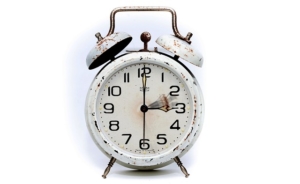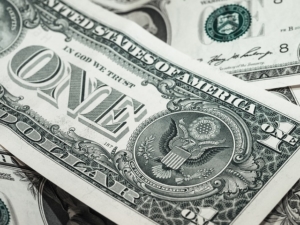An Honest Guide of freelance copywriter rates.
Freelance copywriter rates are often shrouded in mystery. With a confusing selection of hourly, day and project rates available, it can be difficult to understand the billing process – let alone work out the value of copywriting, and it’s return on investment.
In a bid to increase the industry’s transparency, I’ve explored the common types of freelance copywriter rates. I’ve laid out the pros and cons of each type of rate, and I’ve included a few estimations of the prices you can expect to pay for a freelance copywriter. I’ve broken-down how most freelance copywriter rates are calculated, and offered you a behind-the-scenes glimpse into the world of a professional marketing copywriter!
Table of Contents
Hourly Rates
 Hourly rates are the default pricing structure for most freelance copywriters. Unfortunately for you, the client, they’re also the equivalent of writing a blank cheque.
Hourly rates are the default pricing structure for most freelance copywriters. Unfortunately for you, the client, they’re also the equivalent of writing a blank cheque.
Hourly rates are popular with many copywriters because of their inefficiency. They tie payment to output, instead of outcome, rewarding copywriters for the time they invest into a project, instead of the efficacy of their work.
A freelance copywriter that charges by the hour has no incentive to complete your work quickly or efficiently. As long as you receive the agreed output (say a 3000-word whitepaper), it doesn’t matter whether your copywriter took 6 hours to write it, or 60.
In other words, hourly rates reward the copywriter for their inefficiency. The longer they take in completing the project, the greater their reward – whether or not the project required the extra time, or benefited from it. Learn more: Hiring a Freelance Copywriter? Avoid these 5 Damaging Mistakes!
Typical hourly rate
The professional copywriters’ network suggests that most freelance copywriters charge rates of £30 – £100 per hour, according to the experience of the writer. Crucially, they suggest that hourly rates should only ever be used as a pricing benchmark.
Project Rates
 If your agency is looking to get an eBook written, you aren’t interested in the time it takes to create the eBook; only the benefits that eBook can bring, in terms of lead generation, conversion rates and revenue. A copywriter’s pricing structure needs to reflect this.
If your agency is looking to get an eBook written, you aren’t interested in the time it takes to create the eBook; only the benefits that eBook can bring, in terms of lead generation, conversion rates and revenue. A copywriter’s pricing structure needs to reflect this.
Project rates offer a concise, transparent and outcome-orientated way of billing for copywriting. They allow both client and copywriter to have a clear and explicit understanding of the expectations of the project – the costs involved, the purpose of the project, and the desired outcome.
Most importantly, project rates make it easy to identify the potential ROI of working with a freelance copywriter. You’ll know the end-cost of a project before completion, and you’ll be able to calculate the expected return – allowing you to spend your budget (and your client’s) in the most effective way possible.
Typical project rate
Project rates will vary hugely from case-to-case. Thankfully, most professional copywriters will be happy to provide you with a free and accurate quote – simply get in touch, and outline the basic premise and scope of the work. Be wary of any copywriter that tries to provide you with a quote without asking for detailed project information.
Day Rates
 When copywriting projects are likely to entail unexpected costs (or those which can’t be planned for), many freelance copywriters choose to adopt a day rate model. Day and half day rates offer a middle ground between hourly rates and project rates – allowing for clients to pay for work in measurable and controlled increments, whilst incorporating additional flexibility for copywriters to deal with additional tasks.
When copywriting projects are likely to entail unexpected costs (or those which can’t be planned for), many freelance copywriters choose to adopt a day rate model. Day and half day rates offer a middle ground between hourly rates and project rates – allowing for clients to pay for work in measurable and controlled increments, whilst incorporating additional flexibility for copywriters to deal with additional tasks.
Day rates are most useful for agencies that want to bring a freelance copywriter in-house, on a flexible basis. This payment structure allows clients to enlist a copywriter’s aid across a broad range of different projects, and makes it possible for a writer to work efficiently and autonomously – without the need to seek approval and payment for each individual task.
Typical day rate
The Professional Copywriters’ Network suggest that most freelance copywriters charge average rates of £250 – £800 per day.
Why do freelance copywriter rates vary so much?
With prices for copywriting varying from a few pounds per article (care of content mills and intermediary agencies like oDesk) to several hundred (welcome to the world of London copywriting services), there’s an incredible price variance across the copywriting industry.
Whilst it’s important to secure the best value possible for your agency, it’s also crucial to understand this price variance. In the hunt for truly market-beating copywriting, the familiar adage is usually true: you get what you pay for.
Low-price copywriters will provide low-quality content – and if you’re willing to pay more for an experienced copywriting professional, you’ll receive much more in return.
Factors that influence freelance copywriter rates
- Experience. Professional copywriters will have mountains of professional writing experience, sure; but the very best will also have experience working alongside marketing agencies, and using their processes. Many copywriters also have client-side experience, and understand the end-user of their content in an intimate and hugely beneficial way.
- Strategic expertise. Many top-tier copywriters offer strategic guidance and advice. Whether it’s performing a content audit, defining an editorial calendar or fine-tuning one of your campaigns, these types of freelance copywriter are capable of bringing an incredible amount of value to your business.
- Specialisation. Many freelance copywriters choose to specialise in a particular niche and/or industry, whether it’s B2B inbound marketing (my own speciality!) or B2C email marketing. These writers understand everything about content and copywriting within their field of expertise, and their abilities and relevant experience will be unparalleled.
- Location. Geographic location often necessities differences in price – and a copywriter operating out of London will likely charge a very different rate to a copywriter operating out of Sheffield. This is borne out of necessity, and should be something that your own business can empathise with.
- Opportunity Cost. The inbound marketing explosion has made expert copywriters an extremely sought-after commodity. From my own personal experience, the industry is full of far more copy-hungry marketing agencies than highly-qualified copywriters – and as a result, marketing agencies often have to fight for the best talent. Whilst a freelance copywriter should never exploit this fact, it’s still an important factor to consider in your valuation of copywriting services.
- Value Added. The real value of an eBook or blog post doesn’t lie in its copywriting – it’s found in its ability to generate prospects, leads, revenue and profit. Professional copywriters understand this, and will price their copywriting services on the basis of the value they’ll provide to your agency.
Don’t think of value added pricing as a negative. This type of pricing reflects a copywriter’s intimate understanding of your business, your clients, and the value of the content they’re creating. Value added pricing creates the best quality content imaginable – and as most writers will understand your own need to add a margin to their services, their pricing should always leave you with a healthy profit.
Flat rates versus case-by-case quotes
The public pricing dilemma is a burning issue within the marketing industry. Clear pricing offers very obvious benefits to transparency and trust; but when copywriting projects vary so hugely from case-to-case, flat rate pricing can often serve as an injustice to the client.
Flat rate pricing leaves no room for error, and no inclination to go the extra mile on a difficult project. It values your agency, and your clients, at the same rate as every other agency in the industry. The end result? Content that’s exactly the same as every other agency’s.
About the author: Ryan Law

Ryan Law is a freelance marketing copywriter, specialising in white-label content and content strategy for digital marketing agencies. When he’s not busy creating coffee-fueled copy, he’s usually working on his marketing blog or playing a mean guitar. Connect with Ryan on LinkedIn!



Thank you for a well-written, concise, and clean piece of copywriting. It’s a breath of fresh air in a nether world of poorly written online blather by self-knighted writers.